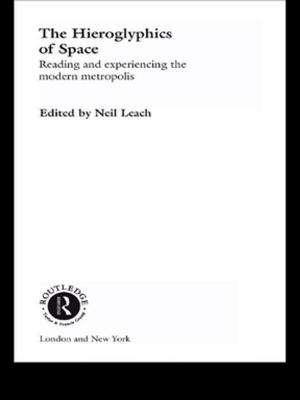Our Knowledge of the Growth of Knowledge (Routledge Revivals)
Popper or Wittgenstein?
Nonfiction, Religion & Spirituality, Philosophy, Epistemology, Mind & Body| Author: | Peter Munz | ISBN: | 9781317676218 |
| Publisher: | Taylor and Francis | Publication: | June 27, 2014 |
| Imprint: | Routledge | Language: | English |
| Author: | Peter Munz |
| ISBN: | 9781317676218 |
| Publisher: | Taylor and Francis |
| Publication: | June 27, 2014 |
| Imprint: | Routledge |
| Language: | English |
Peter Munz, a former student of both Popper and Wittgenstein, begins his comparison of the two great twentieth-century philosophers, by explaining that since the demise of positivism there have emerged, broadly speaking, two philosophical options: Wittgenstein, with the absolute relativism of his theory that meaning is a function of language games and that social configurations are determinants of knowledge; and Popper’s evolutionary epistemology – conscious knowledge is a special case of the relationship which exists between all living beings and their environments.
Professor Munz examines and rejects the Wittgensteinian position. Instead, Our Knowledge of the Growth of Knowledge, first published in 1985, elaborates the potentially fruitful link between Popper’s critical rationalism and Neo-Darwinism. Read in the light of the latter, Popper’s philosophy leads to the transformation of Kant’s Transcendental Idealism into ‘Hypothetical Realism’, whilst the emphasis on the biological orientation of Popper’s thought helps to illumine some difficulties in Popper’s ‘falsificationism’.
Peter Munz, a former student of both Popper and Wittgenstein, begins his comparison of the two great twentieth-century philosophers, by explaining that since the demise of positivism there have emerged, broadly speaking, two philosophical options: Wittgenstein, with the absolute relativism of his theory that meaning is a function of language games and that social configurations are determinants of knowledge; and Popper’s evolutionary epistemology – conscious knowledge is a special case of the relationship which exists between all living beings and their environments.
Professor Munz examines and rejects the Wittgensteinian position. Instead, Our Knowledge of the Growth of Knowledge, first published in 1985, elaborates the potentially fruitful link between Popper’s critical rationalism and Neo-Darwinism. Read in the light of the latter, Popper’s philosophy leads to the transformation of Kant’s Transcendental Idealism into ‘Hypothetical Realism’, whilst the emphasis on the biological orientation of Popper’s thought helps to illumine some difficulties in Popper’s ‘falsificationism’.















